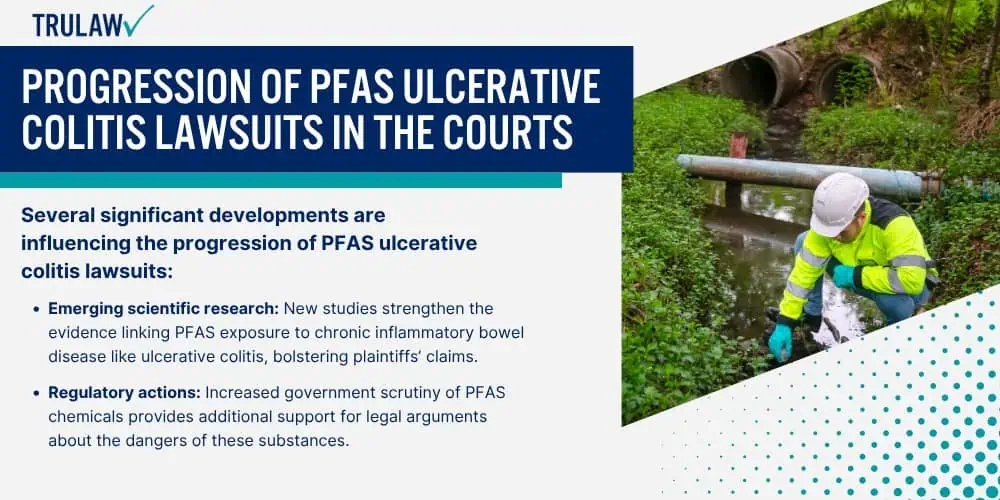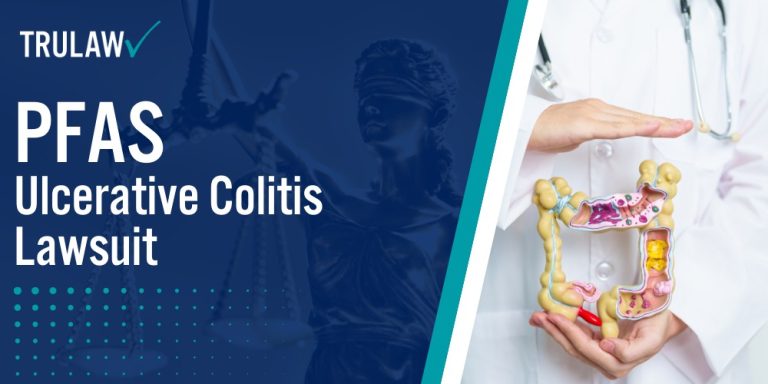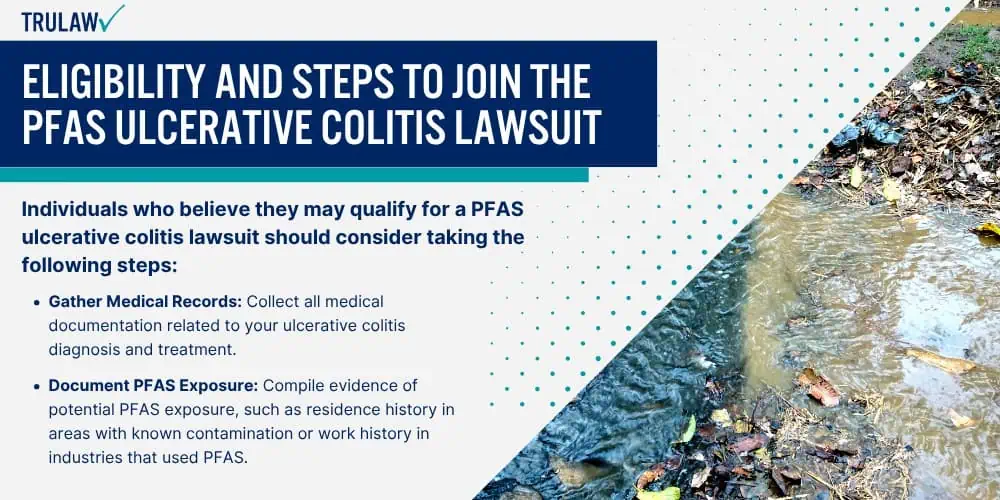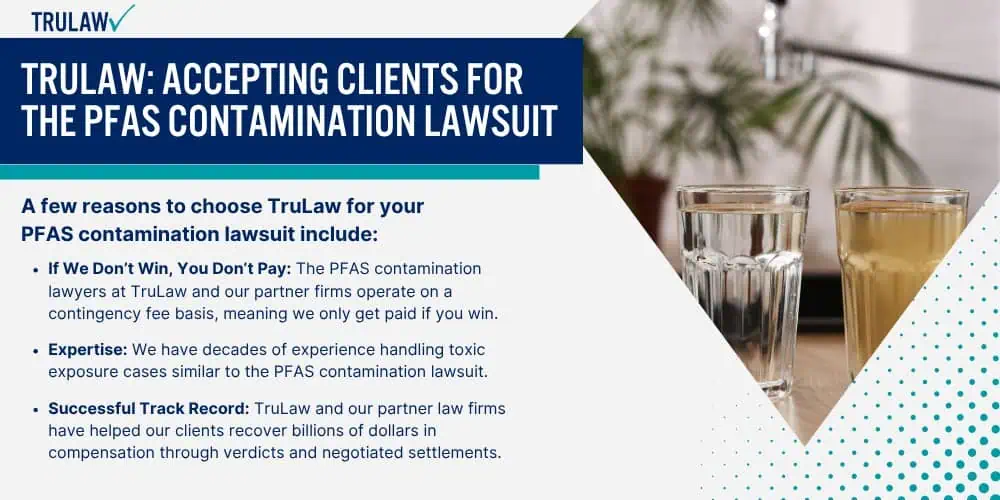PFAS ulcerative colitis lawsuits are advancing through the legal system, with attorneys employing various strategies to expedite cases and secure justice for affected individuals.
Several key developments are shaping the trajectory of these cases.

Legal Strategies to Expedite PFAS Ulcerative Colitis Cases
PFAS litigation presents unique challenges that require innovative legal approaches.
Attorneys representing plaintiffs in these cases are employing a range of strategies to overcome obstacles and move cases forward efficiently.
These efforts aim to ensure that affected individuals can seek timely justice and compensation for their injuries.
The implementation of these strategies reflects the legal community’s commitment to addressing PFAS litigation head-on.
By working collaboratively and leveraging various legal tools, attorneys aim to create an efficient path to resolution for those affected by PFAS-related ulcerative colitis.
As these approaches continue to be refined and applied, they may set precedents for how similar environmental health lawsuits are handled in the future.
Key Developments in PFAS Ulcerative Colitis Litigation
The landscape of PFAS ulcerative colitis litigation is rapidly evolving, with new developments continually shaping the direction and potential outcomes of these cases.
These developments are significant for both legal professionals and affected individuals as they navigate PFAS-related lawsuits.
Several significant developments are influencing the progression of PFAS ulcerative colitis lawsuits:
- Emerging scientific research: New studies strengthen the evidence linking PFAS exposure to chronic inflammatory bowel disease like ulcerative colitis, bolstering plaintiffs’ claims.
- Regulatory actions: Increased government scrutiny of PFAS chemicals provides additional support for legal arguments about the dangers of these substances.
- Corporate document disclosures: Internal documents from PFAS manufacturers, revealed through litigation, shed light on what companies knew about the health risks of their products and when they knew it.
- Judicial rulings: Early court decisions on key legal issues are shaping the overall direction of PFAS ulcerative colitis litigation.
These developments collectively paint a picture of a legal landscape that is becoming increasingly favorable to plaintiffs in PFAS ulcerative colitis cases.
As more scientific evidence emerges and regulatory bodies take action, the argument for holding PFAS manufacturers accountable gains strength.
However, litigation of this scale is inherently unpredictable.
Future developments, such as new scientific findings or shifts in regulatory policy, could still significantly impact the trajectory of these lawsuits.






